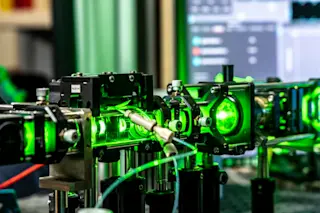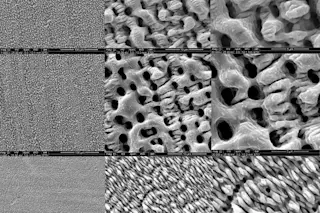Any Trekker (or Trekkie) knows that the warp drives in Federation starships are powered by dilithium-moderated matter/antimatter reactions. When matter and antimatter come into contact: BOOM! There's a huge release of energy and the Enterprise leaps ahead at incredible speeds. Of course that's all sci-fi, right?
What fewer Trekkers, and the public in general, realize is that antimatter is not solely the purview of science fiction: it actually exists in the real Universe--it's not just a common sci-fi MacGuffin (like, say, artificial gravity)--and it's not crazy to suggest it as a possible propulsion system for futuristic spacecraft. Antimatter, in short, is the same as normal matter except with the charges flipped: protons take on a negative charge (anti-protons), and electrons reverse charge to become positrons. Our Sun creates antimatter during the proton-proton chain--the fusion reaction that generates the majority of its energy; some cosmological models even suggest that antimatter should ...













